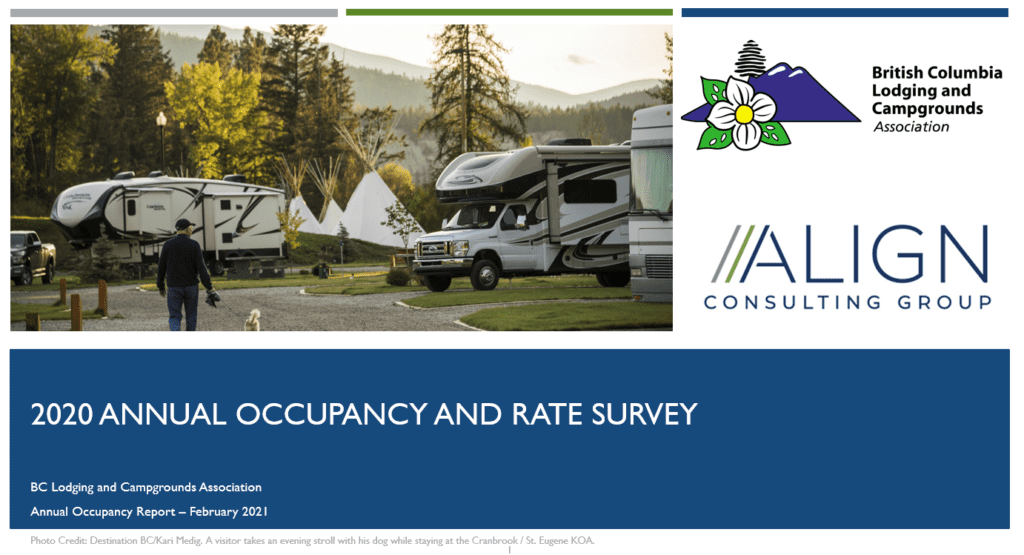A survey of BC Lodging and Campgrounds Association (BCLCA) members and non members who have 10 or more campsites and lodging units is conducted annually by Align Consulting Group each January.
The purpose of the survey is to better understand the overall performance of campgrounds and lodging versus the previous year and to predict trends for the upcoming year.

The survey is sent to campgrounds and lodging by Align Consulting each January. Approximately 100 operators have participated in each of the past few years.
The survey asks about occupancy, trends; upcoming bookings; rates etc., to help us better understand how operators are running their businesses and using practices such as cancellation policies, lock fees, and websites to improve performance and revenues.
The information quantifies the health of the camping industry and helps BC Lodging and Campgrounds Association (BCLCA) deliver services and advocate for change.
Copies of these reports are available to BCLCA Members and other entities by request please contact the BCLCA office.
The British Columbia Lodging and Campgrounds Association represents the interests of independently owned and operated lodging, campgrounds, and RV parks and works for the betterment of these sectors of the tourism industry. The Association is a member of the Canadian Camping and RV Council, the national advocacy voice of campgrounds/RV parks across Canada. Contact us today.
BC Lodging & Campgrounds Association
209 – 3003 St John’s Street
Port Moody, BC
Canada V3H 2C4
© 2022-2023 British Columbia Lodging and Campgrounds Association